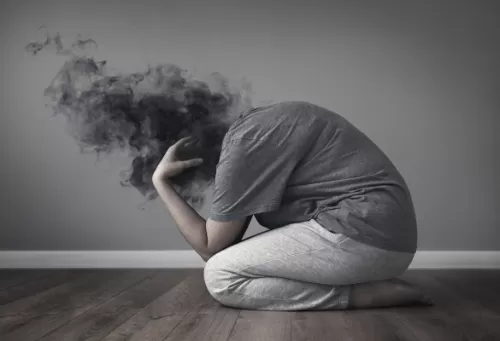The Hidden Signs Of Depression Nobody Talks About
Depression often conjures images of profound sadness and tears, but many of its symptoms remain hidden beneath the surface. While most people recognize the classic signs—persistent low mood, loss of interest, and overwhelming fatigue—there are subtler indicators that can go unnoticed. Understanding these hidden signs is crucial for early intervention and support, as recognizing them may be the first step toward healing.
Related searches

Emotional and Cognitive Clues
💡Irritability and Anger
While depression is commonly associated with feeling “down,” it can also manifest as heightened irritability. Small frustrations—like traffic jams or misplaced keys—may trigger an unexpectedly intense reaction. Friends and family might notice sudden outbursts, but dismiss them as personality quirks rather than underlying emotional distress.
💡Indecisiveness and Cognitive Fog
Another lesser-known symptom is impaired decision-making. Tasks that were once simple—choosing what to wear or what to eat—can feel overwhelming. This cognitive fog arises from slowed thinking and difficulty concentrating. People experiencing this sign may seem absent-minded or forgetful, struggling to follow conversations or complete routine tasks.
Physical and Behavioral Indicators
✨Unexplained Aches and Pains
Depression doesn't only affect the mind; it can also manifest in the body. Chronic aches—such as headaches, back pain, or stomach issues—may have no apparent medical cause. Individuals may visit multiple doctors seeking relief, unaware that their physical discomfort is linked to emotional distress.
✨Changes in Sleep Patterns
Although insomnia is a well-known symptom, excessive sleeping—known as hypersomnia—can also signal depression. Sleeping far longer than usual or feeling unrefreshed after a full night's rest often goes unrecognized, as friends may assume the person is simply “enjoying extra rest” rather than experiencing a depressive symptom.
✨Social Withdrawal and Subtle Avoidance
While complete isolation is obvious, subtler avoidance behaviors can slip under the radar. Declining invitations with vague excuses (“I'm just tired,” “Maybe next time”) or drifting away from social media may be seen as mood fluctuations rather than red flags. Gradual disengagement from hobbies, work, and relationships often signals deeper emotional struggles.
Conclusion
Depression is more than just feeling sad; it weaves itself into emotional, cognitive, and physical realms in ways we rarely discuss. Irritability, indecisiveness, unexplained pain, and subtle social withdrawal might all point to an underlying depressive state. By paying attention to these hidden signs, we can better support ourselves and others who may be silently suffering. Early recognition and compassionate conversation can open the door to professional help, enabling those affected to reclaim hope and well-being.

